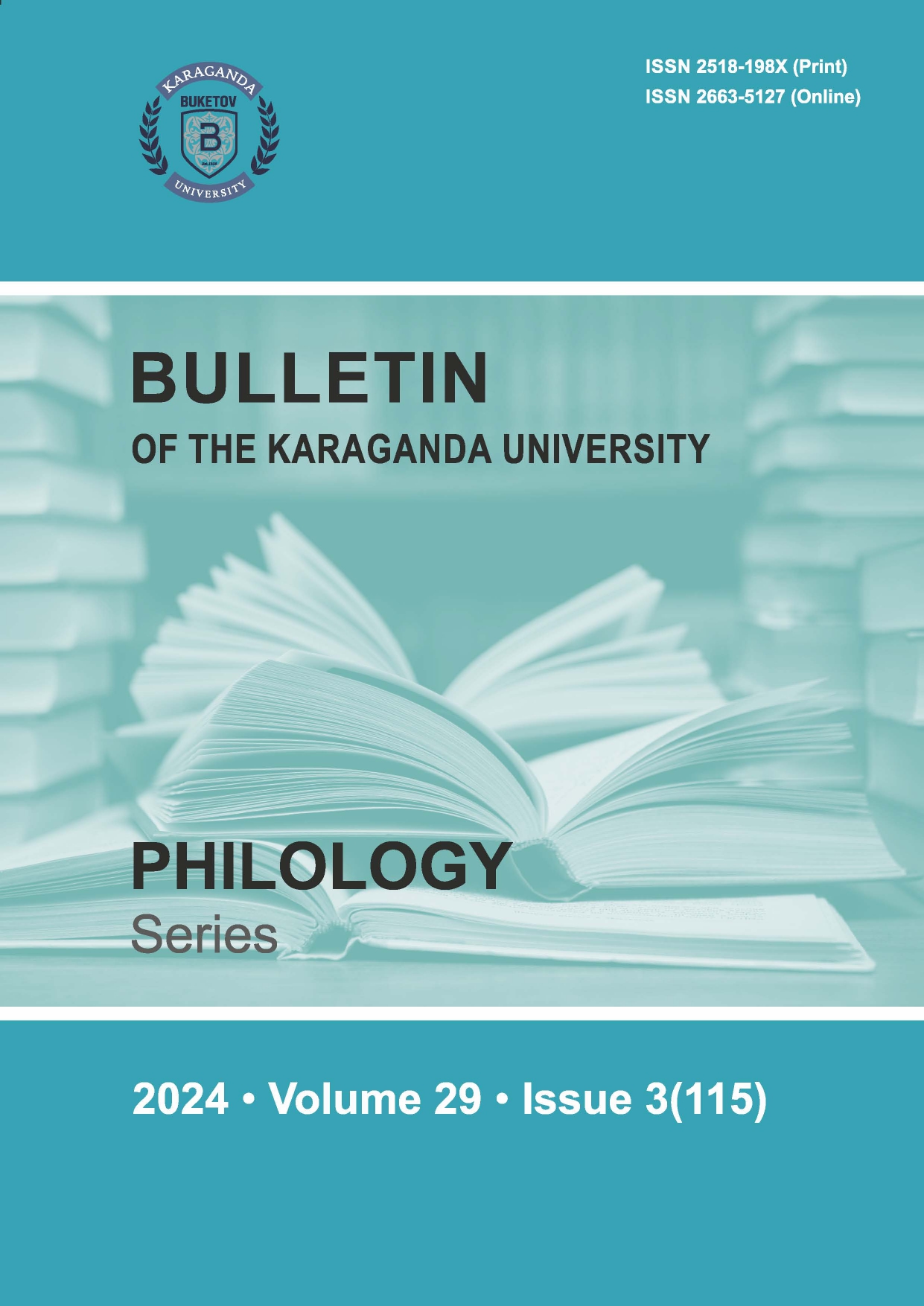Theoretical and methodological orientations and positions of the problem of translation: on the example of philosophical texts
DOI:
https://doi.org/10.31489/2024hph3/418-426Keywords:
translation, philosophy, language problem, hermeneutics, philosophical method, culture, explanation, development, society, interpretationAbstract
In the article the basics of the affiliation between philosophy and translation in connection with moderndevelopments and changes in philosophy and translation were examined. The authors highlight the mainreasons contributing to the deep transformation of humanitarian meanings, which are of particular interest andrelevance. The purpose of the study is a philosophical view of the changing factors in the translation problem.The explanation of the concepts of “philosophy and translation” was reviewed. The authors interprettranslation as a category of social philosophy. The main growth points for thoughts about the transfer of oneof the central concepts of linguistics to the core of a broad interdisciplinary scientific discussion and itselevation to the category of social philosophy were reflected in its changed role and function. The authorsalso consider translation as an important factor in reviving cultural diversity and stimulating the growth ofhuman creativity. It is concluded that the interpretation of translation as a factor that has a significant impacton a person requires consideration by the social philosophymethods. A methodology for analyzing importantsociocultural phenomena, based on the dialectical ideais proposed. The main research method is the doubleopposition “philosophy — translation”. This approach includes the need to pay close attention to theconnections between the whole and its important parts, which increases the relevance of analyzing theconnections between them. Within this idea, the key conclusion is that philosophical categories are derivedfrom real relations to science.




